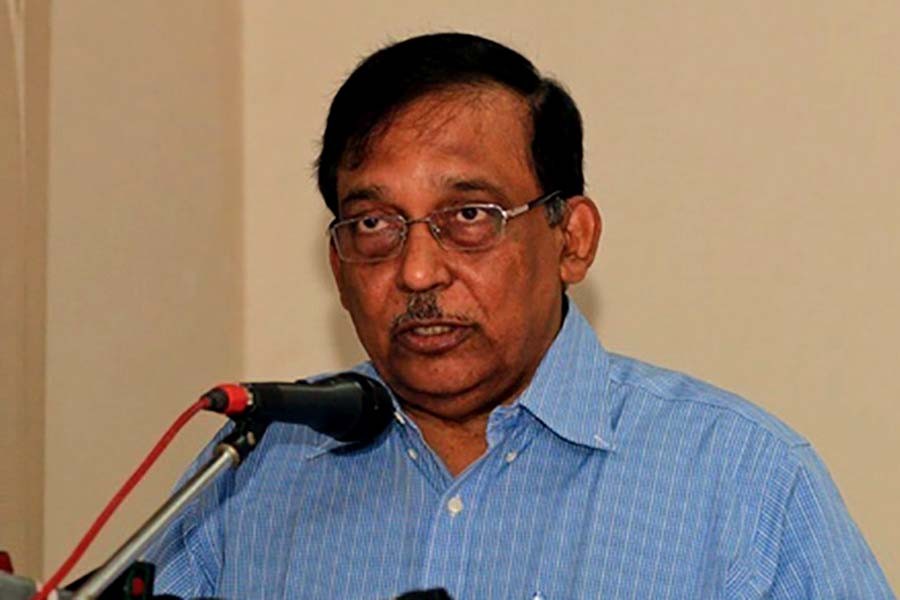Home Minister Asaduzzaman Khan has pointed the finger at some journalists, law enforcers and wealthy people for their role in the proliferation of narcotics in the country.
The minister vowed to bring those involved in supplying drugs to justice at a roundtable discussion on the role of the private sector in dealing with drug addiction on Monday, reports bdnews24.com.
Many policemen and members of the Rapid Action Battalion are languishing behind bars on drug-related charges along with a few businessmen, according to the minister. Some policemen may think that the law applies differently to them, but that is not the case, he said.
"People who take drugs in the police force are undergoing dope tests. They get sacked if they test positive. We are in a very difficult situation here."
Khan plans to implement drug testing for candidates selected for jobs before they take up their posts. Dope tests are already in effect for police and BGB personnel, he said, suggesting that the policy could be implemented in universities to weed out drug addicts.
He believes people in other professions, such as doctors and engineers, are also using drugs. "You can't say that doctors will never take drugs. They are people too and so one or two may go astray."
In order to reduce the demand for drugs, the minister called for a concerted effort to raise awareness about the ills of drug abuse.
The dream of turning Bangladesh into a developed nation by 2041 will be derailed if future generations are not protected from the scourge of drug use, he said.
To combat drug addiction, the government is producing short television commercials while also increasing the manpower and capacity of the Department of Narcotics Control at the district level.
"There are dishonest people everywhere. There are some cases where heroin turns into powder after it's confiscated. So it's not just in the police force but dishonest people are everywhere."
Bangladesh has a strong drug control law while jails have the capacity to hold more than 41,000, which will increase soon, according to Khan.
“Among those incarcerated, 60 per cent are drug dealers,” he said.
"Witnesses don't show up during the trial [of suspected drug dealers] and we have a long backlog of drug-related cases. These cases get lost in the pile."
"We have asked for a special tribunal to adjudicate drug cases, although we haven't got it yet. If the punishment is exemplary, then the demand and supply of drugs will decrease."
In a bid to prevent the trafficking of drugs across the border, the capacity and manpower of the BGB and Coast Guard are being increased. Censors are also being installed at all borders, while helicopter patrols have been arranged to stop drugs from entering the country.
Bangladesh currently has around 7 million drug addicts, he noted, However, rehabilitation centres lack experienced doctors and psychiatrists.
Khan assured that the government will support the establishment of facilities offering treatment for drug addiction in the private sector.


